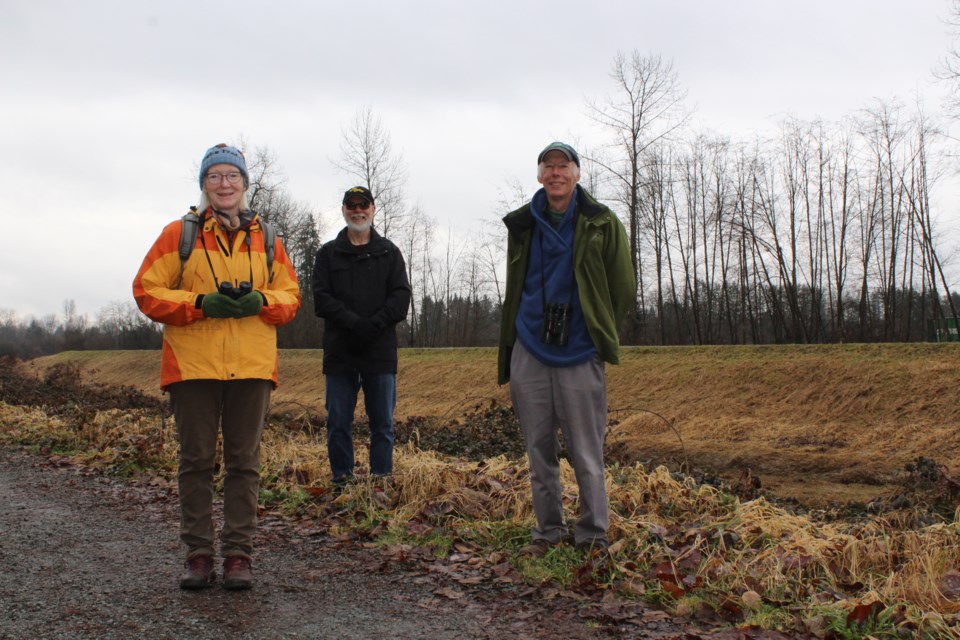Not even a grant from the City of Coquitlam could save the Friends of Deboville Slough.
Last year, the non-profit group that cares for the freshwater tidal marshlands in northeastern Coquitlam and Port Coquitlam looked at its upcoming bill for liability insurance.
“It had more than doubled,” Friends president David Mounteney told the Tri-City News last Friday at the slough. “The increase was just too much for our volunteer group to handle.”
Now, the dozen members are part of a charity that founded Friends nearly two decades ago with the cities of Coquitlam and Port Coquitlam: the Burke Mountain Naturalists (BMN).
And, on Monday, they’ll meet for the first time via Zoom as a committee of the Naturalists.
“We welcome them with open arms,” said Victoria Otton, a longtime BMN executive member.
The Friends will largely act as an independent body, said Mounteney, the new committee chairperson, and will have separate financial accounts from BMN, but their overlapping goals of protecting the environment on the lower slopes of Burke Mountain will stay the same.
“Essentially, we’re just eliminating the need now for two memberships. You save $10,” Mounteney joked, noting 99 per cent of the Friends have been BMN members for years.
Together, the two groups make a powerful force and offer plenty of knowledge about the slough, which has seen a loss of wildlife and habitat from surrounding development and other factors. On the mountain alone, Coquitlam plans to eventually house 50,000 residents, and the construction and traffic increases have had dire impacts on the watercourse, he said.
The now-defunct Fraser River Estuary Management Program (FREMP) had Deboville Slough on its red list for endangered areas in the Lower Mainland, added Friends volunteer Jeff Rudd.
PUBLIC AWARENESS
Education is a big driver for the Friends, which — like most non-profits over the past two years — has had to scale back its operations and activities due to the COVID-19 pandemic.
But with provincial health orders easing this year, the volunteers hope to organize more public outreach opportunities, especially with the new families moving close to the slough.
These include:
- controlling invasive plants (especially Japanese knotweed, by cutting and not pulling) that grow in the slough when foreign soil is dumped nearby for construction projects
- planting native species
- taking part in shoreline clean-ups
- organizing the nest box program
- leading nature walks
Still, BMN has also kept a close eye on the slough over the years by educating the public through its Discover Nature in the Tri-Cities publication, as well as providing a bird checklist.
“We’ve had a long history with the slough,” Otton said, “and that will just get stronger.”
Rudd said he’s currently working on a presentation to share with BMN members about the slough’s history, which dates back more than 120 years under the provincial government.
As part of his research, Rudd has mined old BMN newsletters that record the past efforts at Deboville Slough.
“The articles show that environmental activism has worked in this area.”
For more details about the Burke Mountain Naturalists or the Friends of Deboville Slough committee, or membership and public outreach, visit burkemountainnaturalists.ca.




